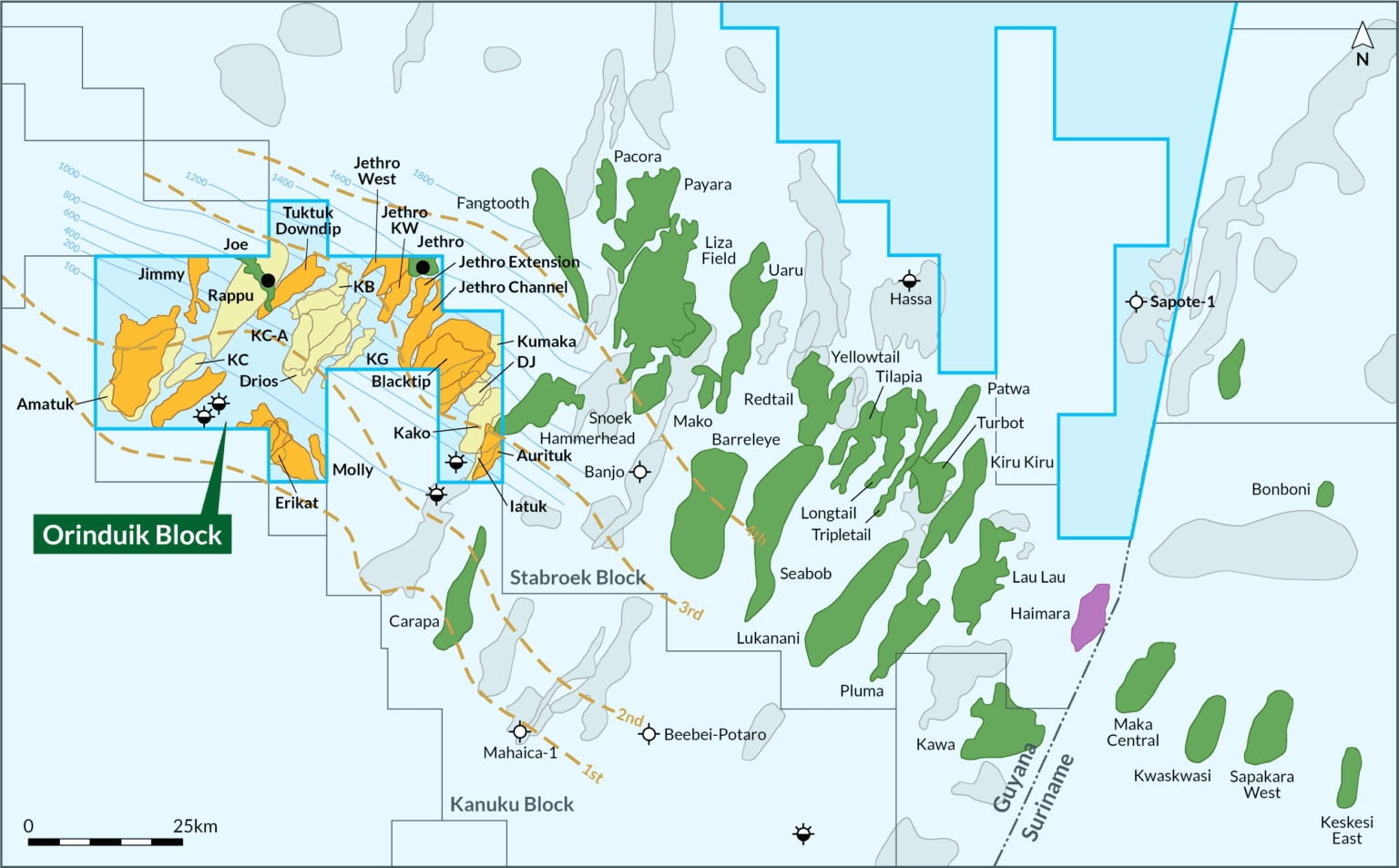Eco Atlantic Oil and Gas is taking a fresh look at its 2019 Jethro-Lobe discovery offshore Guyana, after ExxonMobil’s Hammerhead project proved that heavy oil finds in the basin can be commercially developed.
Chief Executive Officer Gil Holzman said in a recent interview that Exxon’s decision to advance Hammerhead has reshaped how Eco views its Orinduik Block, where it holds 100% ownership. The Block, located 170 kilometers offshore, spans 1,800 square kilometers and has a best gross prospective resource estimate of 8.1 billion barrels of oil equivalent.
“In Guyana, we are part of a lengthy process of potential farm-out after we managed to buy out,” Holzman said. “At first, we thought we would farm out just to bring in a partner to drill the light rotation, especially given some developments that happened this year, mainly the Hammerhead sanction.”

He explained that the decision “gave a fresh look on what could be found in Guyana” since the six previous ExxonMobil projects were all light-oil Cretaceous discoveries.
“All of a sudden, they came up with Hammerhead and actually proved that they can develop and make economic, a heavy oil discovery…” Holzman said. “The Hammerhead development decision took us to take a fresh look into the Jethro one-billion-barrel oil discovery that we had in 2019…to potentially re-evaluate and recall the non-commercialization notice that Tullow [Oil] gave to the government and to have a fresh look into a potential heavy-oil development.”
Following the Jethro discovery, then block operator Tullow Oil had estimated the find at ‘over 100 million recoverable barrels’. There has been no publicly stated appraisal since then.
‘Heavy oil’ at Orinduik Block could be developed with floating production facility – Eco | OilNOW
The Jethro-Lobe well was drilled in July 2019 using the Stena Forth drillship. It encountered 180 feet of net oil pay in lower Tertiary sandstone reservoirs and recovered mobile heavy crude, similar to that found in the North Sea, Gulf of Mexico, and Brazil’s Campos Basin, with high sulfur content.
Holzman said this milestone has made Eco reconsider its earlier assumptions about the tertiary play. “The fresh understanding of how the tertiary horizon in Guyana might work, containing some heavy oil, which is needed in many places around the world, made us take a different approach to the farm-out and to the licence,” he said. “Hopefully, we’ll be able to be granted the revaluation right of the Jethro discovery.”
Eco operates across three frontier basins – Guyana, Namibia, and South Africa – holding 85% interests in three Namibian blocks following a farm-out and a 75% working interest in South Africa’s Block 1 as operator.
Holzman said the company’s focus remains on exploration but with “large, material exposure” in some of the world’s most promising basins.



